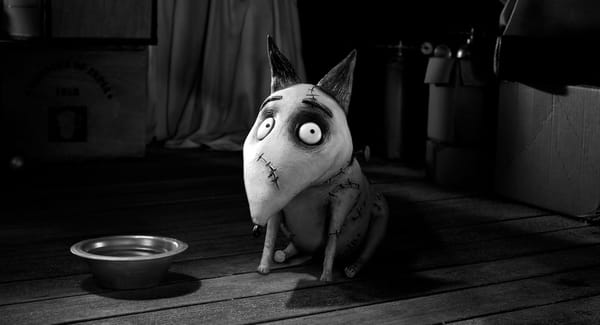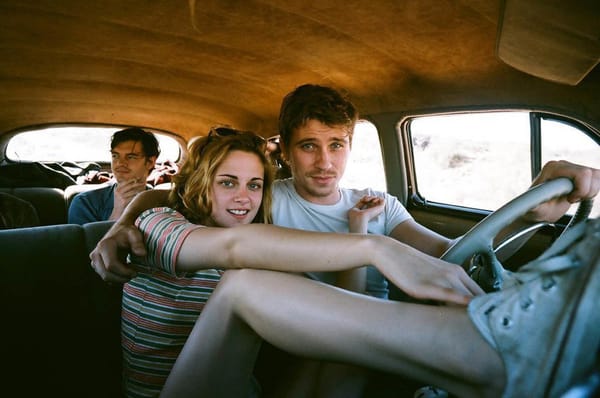The best films from the 1950s
John Park moves his on-going feature towards nearly being in colour...
Recently, the British Film Institute (BFI) released the results of their celebrated poll, “THE GREATEST FILMS OF ALL TIME”, in which they surveyed film critics and directors to list their ten favourite films. Now the Felix Film team, as much as we’d love to, doesn’t have that kind of time or resources. And so we decided to split the films up according to the decades in which they were released. So every week, we will present you with our top films of each decade.
- The Killing (1956)
One of Stanley Kubrick’s less-known but by no means inferior works, this is exactly how you should do a short, snappy, smart heist movie. An ingenious conning scheme, a group of shady characters, and a whole load of complications that messes up the protagonist’s carefully planned execution. It’s certainly compact, full of exhilarating twists, and unexpected outcomes that fit so perfectly with the build-up; an underrated, under-recognised classic from a director whose diversity in his work amazes and inspires even to this day.
- Rashomon (1950)
When it comes to law and the justice system, the great Patty Hewes once said “trust no-one.” And this solid, tightly scripted and structured offering from Japan’s internationally acclaimed film director, Akira Kurosawa, shows exactly that. People see things, observe and interpret events with their own eyes, in their own views, and when it suits them, they can downright lie, even the ones we never expected. It’s foreign, black-and-white (two big turn-off factors for some people) but it’s an endlessly fascinating quest for the truth.
- Rear Window (1954)
You can’t talk about thriller without the name Alfred Hitchcock. The BFI ran a tribute programme aptly named “The Genius of Hitchcock: Master of Suspense” and the mentioned film is a fine example as to why he is considered to be an extraordinary filmmaker. A wheelchair-bound man (James Stewart), whilst observing his neighbours with his binoculars, suspects he’s witnessing criminal activities, a suspicion that lands him in a lot of trouble. Grace Kelly, at her glamorous, luminous best, also stars in his stylish ride.
- Some Like It Hot(1959)
It’s a delightfully odd, eccentric, but most importantly, timelessly hysterical screwball comedy that never shows its age in its head-spinning dialogue and cleverly devised comedic chaos. As two musicians (the two perfectly matched Jack Lemmon, Tony Curtis) go on the run for witnessing a deadly mob hit, they decide it would be best to disguise themselves in drag, entering an all-female band. There, they both naturally fall for the ditzy, blonde lead singer Sugar (Marilyn Monroe). Nobody’s perfect? Well, this film is pretty darn close to perfection.
- On the Waterfront (1954)
Everyone tries, and fails, to recreate the speech made by Marlon Brando in one of the most iconic roles of his career. Yes, the “I coulda been a contender” scene is so famous that Brando’s performance here is considered one of the most remarkable acting achievements anyone has ever put on screen. The story of dockworker Terry Malloy’s struggle against corruption and moral obscurity makes for a deeply touching and fascinating watch, with Eva Marie Saint, in her film debut, as sweet, likable love interest.
- Sunset Boulevard (1950)
Sitting alone in her worn-down mansion is Norma Desmond, played by the fiery Gloria Swanson firing off icy one-liners. She is a silent movie star who has faded away into obscurity ever since the “talkies” started making more money. Enter Joe Gillis (William Holden), an aspiring Hollywood writer who hasn’t quite cracked the industry yet. Dreaming of glittering careers, the two decide to work together, although inevitably not everything can go that smoothly. Tragic, disturbing, funny, and unforgettable, this is Billy Wilder at his best.
- All About Eve (1950)
Fasten your seatbelts. It’s going to be a bumpy night. The ultimate cat/bitch-fight and showdown between two headstrong women take place in Joseph L. Mankiewicz’s Oscar winning film set in the cutthroat, ruthless world of stage actors, directors, writers and whatever significant others they may have and the conflicts that come along. Hoarse-voiced, wide-eyed Bette Davis is superb as the ageing, insecure star threatened by the sneaky, snarky Anne Baxter, slowly working her way up the ladder with her innocent yet deadly smirk.
- A Streetcar Named Desire (1951)
“Stella!!!!!!!!!!!!!! Hey Stella!!!!!!!!!!!!” is a line of dialogue so simple yet powerful and perfectly timed and delivered (…by the great Marlon Brando, who else?) that its resonance in the dramatic finale is without a doubt one of the most memorable parting shots ever. Paired with the exceptionally talented and seductive Vivien Leigh, the two give master class performances, marking a true high in their careers. Elia Kazan’s toned down script, to fit the industry codes back then, may frustrate some, but its energy is still very much felt.






